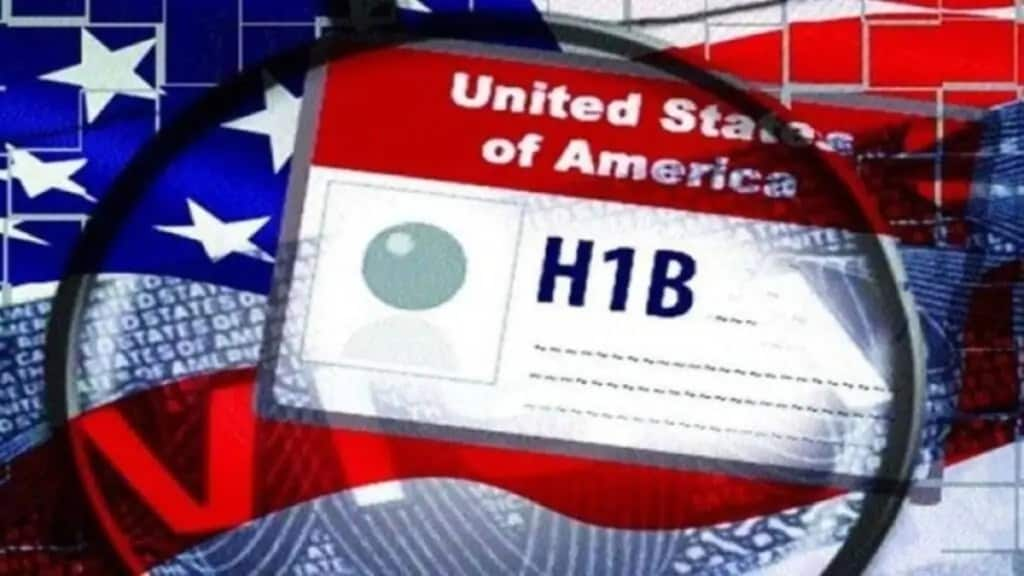In a significant move reflecting a shift in strategy, Infosys has reported a notable decrease in its reliance on the H1B visa program, mirroring a broader trend within the Indian tech industry. The company’s CFO, Jayesh Sanghrajka, shared that Infosys’ dependence on H1B visas has dropped significantly over the years, as the company adapts to a more resilient operational model. This shift comes shortly after HCLTech also made headlines with a similar reduction in its reliance on H1B visas, emphasising the changing dynamics of tech industry staffing.
Infosys’ Shift Toward a Resilient Workforce Model
Infosys has reduced its onsite workforce in the United States significantly, with the proportion of its employees working onsite now standing at just 24 per cent, down from around 30 per cent previously. This reduction is part of a broader strategic move to rely less on foreign talent on US soil. Sanghrajka emphasised that this reduction in onsite dependency has allowed the company to build a “resilient model,” where the proportion of H1B visa holders among their US-onsite population has dropped to over 60 per cent. This shift reflects Infosys’ growing confidence in its ability to maintain a competitive edge while reducing its reliance on the H1B visa program.
Local Hiring and Nearshore Expansion
A key component of this strategy has been the increased focus on nearshore hiring. As Sanghrajka pointed out, Infosys has seen a significant increase in its nearshore workforce, which involves hiring employees in countries close to the US. This approach has allowed the company to maintain its operational efficiency while minimising its dependence on the controversial H1B visa program. This change is in line with a broader industry trend, where tech companies are increasingly looking to hire locally and adopt nearshore strategies to optimise their global talent pool.
HCLTech’s Parallel Shift
This shift is not unique to Infosys. Earlier this week, HCLTech, another major Indian IT company, shared similar insights. HCLTech reported that around 80 per cent of its workforce in the US comprises local hires, significantly reducing the need for H1B visas. The company’s Chief People Officer, Ramachandran Sundararajan, explained that HCLTech’s H1B visa application process had dwindled to between 500-1,000 visas per year, which he described as minimal. Sundararajan also highlighted that over the past four years, the company had become largely “locally self-sufficient,” a trend that is indicative of the ongoing transformation in the tech industry.
Implications of Trump’s Return on H1B Visas
While Indian tech giants like Infosys and HCLTech are finding alternative staffing solutions, the future of the H1B visa program remains uncertain. With the potential return of Donald Trump to the US presidency, changes to immigration policies could once again alter the landscape for H1B visas. Trump’s previous administration had enforced stricter visa regulations, prioritising American workers and increasing competition for tech professionals from India and other countries. If similar policies are reintroduced, it could lead to tighter restrictions on foreign workers and greater competition for the limited number of H1B visas available each year.
Impact on Indian-Origin Tech Companies
Despite the shifting landscape, Indian-origin tech companies continue to be a dominant force in the H1B visa market. Data from the US Citizenship and Immigration Services reveals that Indian-origin firms accounted for approximately one-fifth of all H1B visas issued in recent years. In the April-September 2024 period alone, these companies were granted nearly 25,000 H1B visas out of a total of 130,000 issued, underscoring the continued demand for skilled tech professionals from India.
The reduction in H1B visa dependence by major Indian tech companies signals a broader trend in the global tech industry toward diversifying talent sources and optimizing workforce distribution. While the H1B visa program has been a crucial avenue for Indian tech companies to tap into the US market, the growing reliance on local and nearshore hires indicates a shift in how companies are managing their talent pipelines in response to changing political and economic pressures.
The future of the H1B visa program remains uncertain, but companies like Infosys and HCLTech are showing adaptability in their strategies. By diversifying their hiring practices and shifting focus to local talent, these companies are positioning themselves for success in an increasingly competitive and complex global job market.


